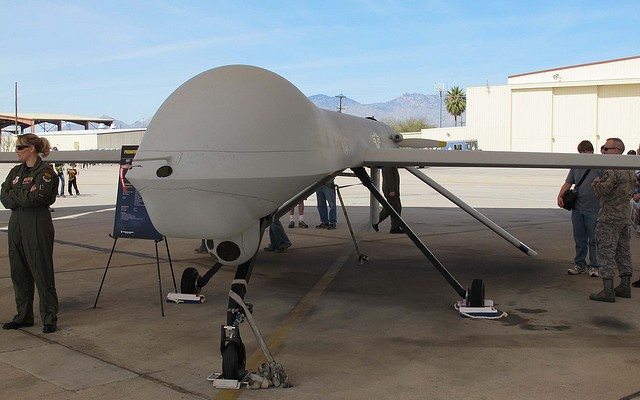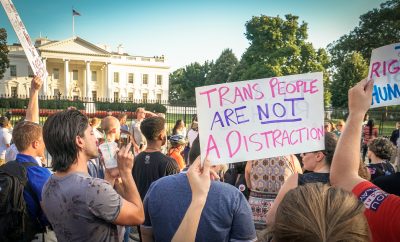
News
Drone Rules: Are They Enough to Protect Civilians?
Whether you’re for or against drone strikes, it should at least be accepted that regulations should be followed when using drones. The Obama Administration’s drone strike policies have most recently come into question after a wedding procession turned into a funeral. The December 2013 drone strike in Yemen violated the Administration’s own policies to prevent civilian casualties, according to a recent report by Human Rights Watch. A dozen people were killed and many others injured, including the bride. While the government claimed that the strike targeted and killed only militants, Human Rights Watch reported otherwise. This incident begs two questions:
1. What are the Obama Administration’s drone strike regulations?
2. Are the regulations effective at targeting terrorists and protecting civilians?
Obama cited his administration’s drone policies in a speech last May, stating that strikes are permitted only when there is ‘near certainty’ that no civilians will be hurt. However, the phrase ‘near certainty’ was never officially defined and remains ambiguous. Additional guidelines included the following: ‘near certainty’ of the presence of the enemy; the enemy still poses a threat to the United States; and no possibility of the enemy’s being arrested or captured by different means. According to Human Rights Watch, the U.S. did not meet any of these guidelines in the December Yemeni attack.
Did the U.S. have ‘near certainty’ that the terrorist was among the group in the wedding procession?
The U.S. claimed they did, and that among the members of the targeted group was Yemen’s most-wanted terrorist, Shawqi Ali Ahmed al-Badani; however, the government has not offered any conclusive evidence or video proof that the target was, in fact, present during the attack. The government is not legally required to report the logistics of drone strikes, but this very fact points to a potential flaw in the policies. Without a record, there is no way to demand accountability. Moreover, the government’s claim contradicts statements that Human Rights Watch gathered from witnesses and members at the wedding party, none of whom affirmed the presence of the terrorist or other members of Al-Qaeda.
Was the main target and others involved in the attack a threat to U.S. security?
Shawqi Ali Ahmed al-Badani is claimed to be an Al-Qaeda affiliate who was involved in the shutdown of around a dozen U.S. diplomatic centers across the Middle East last year. It seems that the target did, in fact, pose a continuing threat to U.S. security. However, the study suggests it is likely that the terrorist was not among the group attacked. Furthermore, Human Rights Watch acknowledged that there was a possibility that some Al-Qaeda associates were among the dead; however, it is unknown whether these people posed imminent threats to U.S. security.
Did the U.S. have ‘near certainty’ that no civilians would be hurt?
The fact that those targeted were part of a wedding makes it hard to believe that the United States was sure no civilians would be killed or injured. Moreover after the attack, Yemeni officials presented money and assault rifles, a traditional gift of apology, to the families of the dead and wounded. The Yemeni officials’ apologetic actions signify that many of those attacked were civilians and were mistakenly targeted. Finally, Human Rights Watch asserted that targeting the whole group to eliminate the terrorist would still not justify an attack by the United States since the attack would involve a disproportionate amount of civilian casualties.
According to the report, the Obama Administrations’ drone strike guidelines were not properly followed. Furthermore, the guidelines are not stringent enough to protect civilian lives, as there is no clear and established meaning of ‘near certainty.’ The phrase leaves much to the interpretation.
As more civilians are killed in the process of targeting terrorists, the United States risks endangering its relationship with countries that are working with them to stop terrorism. The U.S. risks breaching international laws of war due to the amount of civilian casualties. There have been more than 390 drone strikes during the Obama Presidency, and the consequences of these strikes include the deaths of 273 civilians. Lawyers from a British human rights organization have already filed in the ICC for the killing of civilians in a drone strike in Pakistan, which signifies the threat of a violation of international law is real. Not only do drone strikes pose a potential threat to civilian life, but they could also worsen the United States’ diplomatic relations with other countries and its own international reputation.
[Washington Post] [Human Rights Watch] [Bureau of Investigative Journalism] [Truthout]
—
Sarah Shelden (@shelden430)
Featured image courtesy of [doctress neutopia via Flickr]








Comments